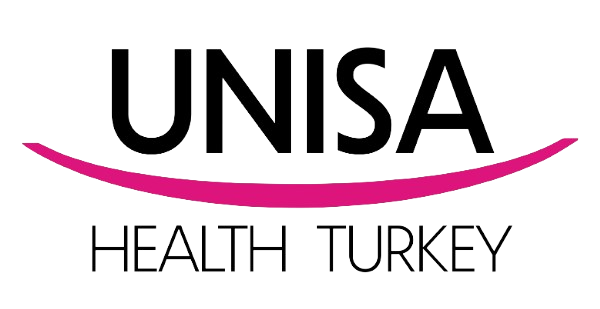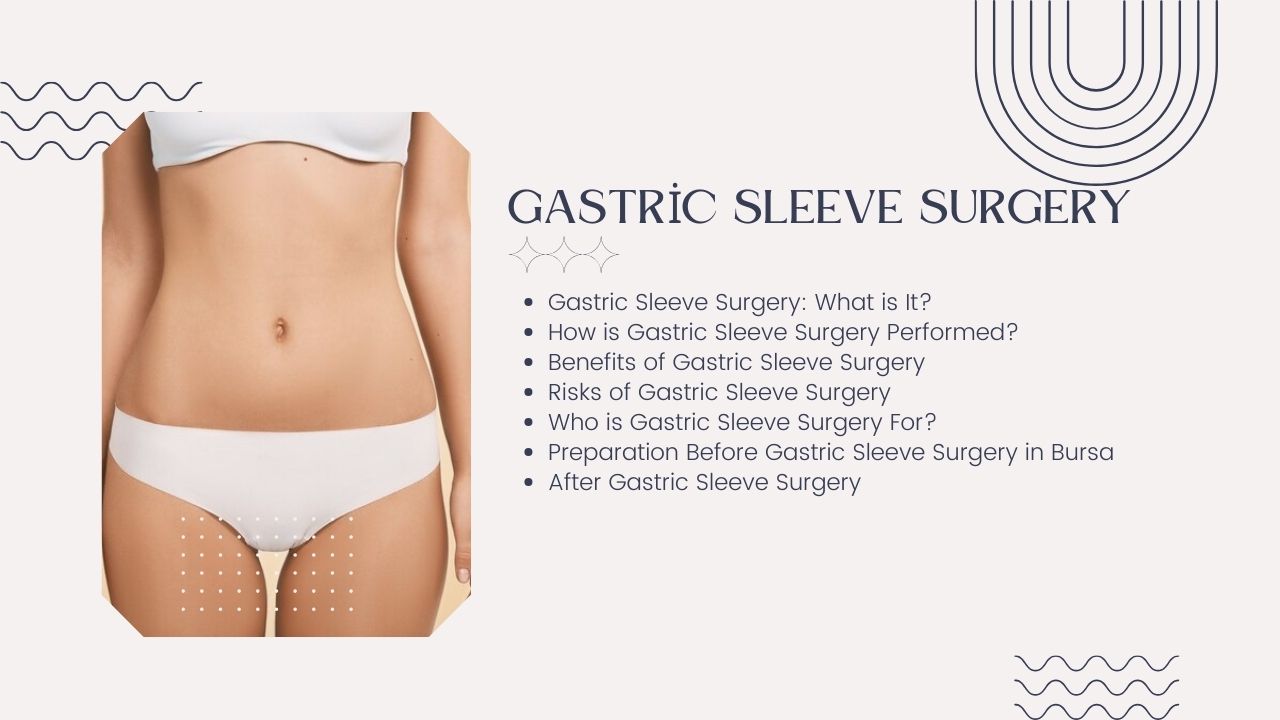Hello,
How Can We Help You?
Contact Form
Fill in the form and we will contact you as quickly as possible.
Contact us on Whatsapp
Scan with your camera app or click the QR code to start a conversation.


Obesity is one of the most important health problems of our time. Excess weight not only affects your appearance but also your overall health. Despite the many methods tried to combat obesity, gastric sleeve surgery is the most effective solution for some individuals.
This guide covers everything you need to know about gastric sleeve surgery. You can find information on what the surgery is, how it is performed, its benefits and risks, the preoperative and postoperative process, and frequently asked questions.
Gastric Sleeve Surgery: What is It?
How is Gastric Sleeve Surgery Performed?
Benefits of Gastric Sleeve Surgery
Risks of Gastric Sleeve Surgery
Who is Gastric Sleeve Surgery For?
Preparation Before Gastric Sleeve Surgery in Bursa
After Gastric Sleeve Surgery
Gastric sleeve surgery is one of the most commonly used surgical methods in the treatment of obesity. This surgery is performed by removing 80% of the stomach and reshaping the remaining part into a sleeve shape. This reduces the volume of the stomach and allows the individual to lose weight by consuming less food.
Gastric sleeve surgery can be performed laparoscopically or through open surgery. In laparoscopic surgery, the operation is performed by making several small incisions in the abdominal area. In open surgery, a larger incision is made in the abdominal area. Laparoscopic surgery is preferred more because it is a less invasive method.
Gastric sleeve surgery has many benefits. Some of these include:
Gastric sleeve surgery helps obese individuals lose a significant amount of weight.
Gastric sleeve surgery can provide diabetes control in diabetic patients and reduce or eliminate the need for diabetes medications.
Gastric sleeve surgery can lower blood pressure in patients with hypertension.
Gastric sleeve surgery can improve symptoms in patients with sleep apnea.
Gastric sleeve surgery can lower cholesterol and triglyceride levels.

Like any surgery, gastric sleeve surgery also has some risks. Some of these include:
Anesthesia-related complications such as allergic reactions or respiratory problems may occur.
There is a risk of blood clots in the legs after surgery.
Infection may occur at the surgical site.
Ulcers may develop in the stomach.
Nutritional deficiencies such as vitamin B12 and iron may occur.
Hair loss may occur after surgery.
Short-term and long-term complications: Rarely, complications such as gastric stenosis, gastritis, reflux disease, and hernia may occur.
Gastric sleeve surgery can be performed for individuals who meet the following criteria:
Body mass index (BMI) of 40 kg/m2 or higher
BMI between 35 kg/m2 and 40 kg/m2 with obesity-related health problems such as diabetes, hypertension, or sleep apnea
Individuals who have failed previous weight loss attempts
Before gastric sleeve surgery, the patient needs to make some preparations. Some of these include:
Smoking increases the risk of postoperative complications.
Losing as much weight as possible before surgery makes the surgery easier and reduces the risk.
Blood thinners like aspirin can increase the risk of bleeding during surgery.
After surgery, nutritional deficiencies such as vitamin B12 and iron may occur.

After gastric sleeve surgery, the patient needs to stay in the hospital for a while. This period is usually 2-3 days. While in the hospital, the patient is given pain relievers and a nutrition program. After discharge from the hospital, the patient consumes liquid and soft foods for a while. Gradually, the transition to solid foods is made.
Nutrition the nutrition program after gastric sleeve surgery is very important. The patient should consume liquid and soft foods for the first month after surgery. Then, under the supervision of a dietitian, the transition to solid foods is made. The patient should drink plenty of water and have a diet rich in protein.
Follow-Up the patients need to undergo regular check-ups with the doctor and dietitian after gastric sleeve surgery.
Exercise the patients need to exercise after gastric sleeve surgery. Exercise helps in weight loss and maintaining overall health. Patients should start light exercises 1-2 weeks after surgery and gradually increase their exercise program over time.
Psychological Support the patients may experience some psychological problems after gastric sleeve surgery. Therefore, it is important to receive psychological support.
Contact Form
Fill in the form and we will contact you as quickly as possible.
Contact us on Whatsapp
Scan with your camera app or click the QR code to start a conversation.